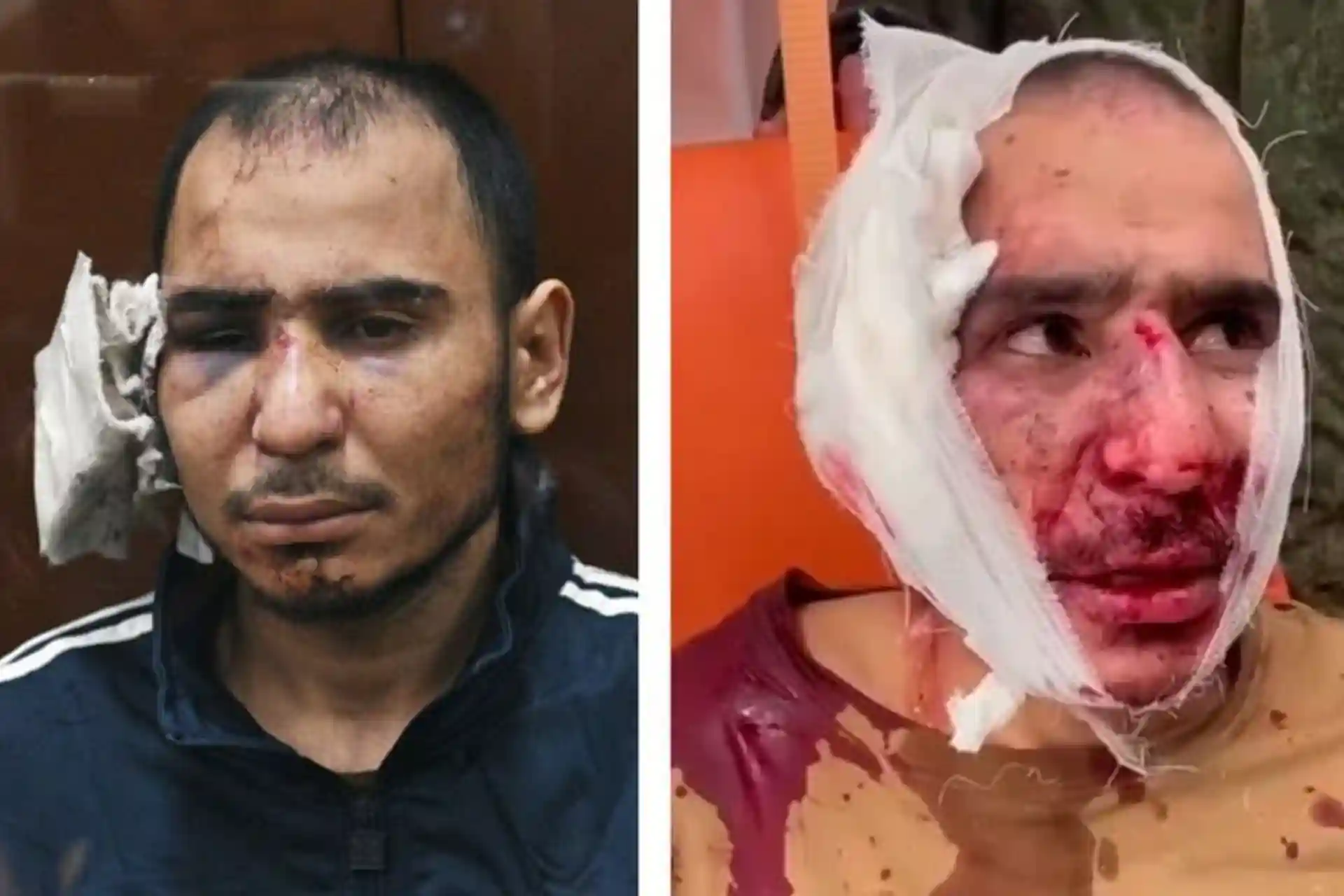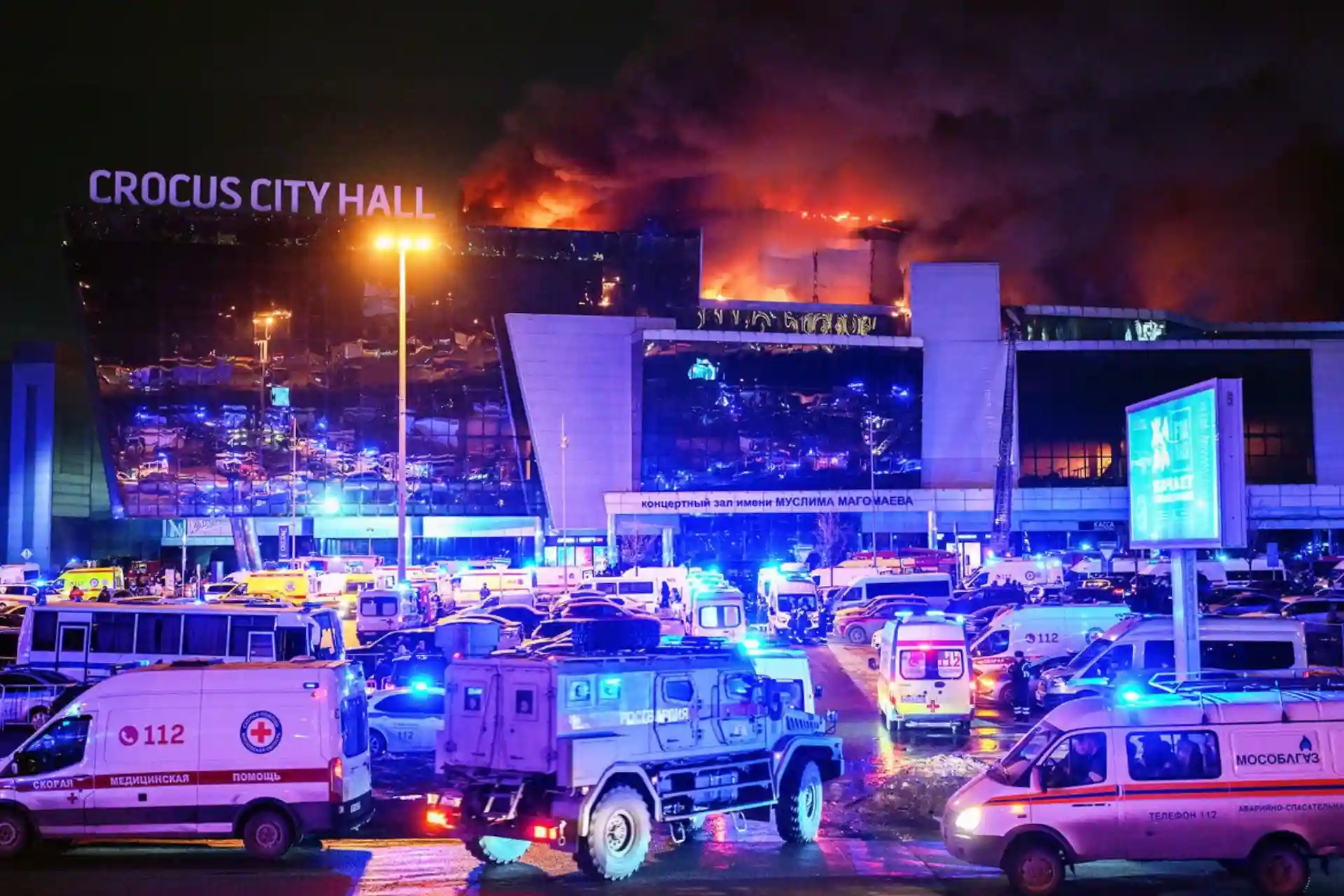In Russia, the tolerance of the state and society to violence is increasing - NT
Videos showing the torture of four people accused of carrying out Russia's deadliest terrorist attack in decades have gone viral in what analysts say is a sign of the Russian state's and society's growing tolerance for mass violence.
"Torture should not exist as an incident. The police and the state will torture a terrorist today, see that this method is approved, and tomorrow they will torture an activist, a journalist, anyone else. They don't know any other way," wrote activist and investigative journalist Ruslan Shaveddinov.
Four men accused of masterminding Russia's deadliest terror attack in decades appeared beaten and bandaged in a Moscow court on Sunday night. One of them had his ear cut off, and the other was lying in a gold-colored wheelchair with a bulging eye, a half-open hospital gown, and a catheter in his knee.
Videos of the men being tortured during interrogations have been circulating on social media since Saturday, in what analysts say is retaliation for the concert hall attack last Friday that killed at least 139 people and injured 180 others.
In one of the most disturbing videos, one of the accused, Saidakrami M. Rajabalizoda, had a part of his ear cut off and stuffed into his mouth. A photo circulated on the Internet showed another man, Shamsidin Faridoun, with a battery attached to his genitals.
It is not yet clear how the videos began to spread, but they were distributed by nationalist, pro-military Telegram channels considered close to Russian security services, according to The New York Times.
Although the most brutal footage was not shown on state television , the government's brutal treatment of the accused it became clear. The decision of the Russian government to publicly show this in court is unprecedented, and the intended purpose is to show that revenge has been taken and to warn potential terrorists, analysts say.
According to analysts, the open display of torture also showed how militarized and tolerant of violence Russian society has become since the war in Ukraine began .
"This is a sign of how advanced we are in mastering new methods of warfare," said Andrey Soldatov, an expert on Russian security services.
International surveys show that societies tolerate all forms of violence against violent criminals, including terrorists, serial killers and perpetrators of violent crimes against children.
However, Sadovskaya said that the videos shown on television are a new minimum for the Russian state.
"This shows that the state and authorities are accepting violence and normalizing the torture of a certain subject, " he said.
Kremlin spokesman Dmitry Peskov declined to comment on the torture allegations during a briefing with reporters on Monday. But former president Dmitry Medvedev, now deputy chairman of Russia's Security Council , praised those who captured the suspects.
"Should we kill them? We must kill them . And we will do it," he wrote on the Telegram channel on Monday. "But it is more important to kill all those who participated in the attack ."
Ivan Pavlov, a lawyer who defended complex national security cases before he was forced to flee Russia, said torture has long been used in terrorism and assassination cases and is mostly done in disguise. He said that when reports of torture seep into prisons, it “lets other people know that if they're accusing you of terrorism, the special forces will torture you. Thus, it acts as a preventive measure," he says.
"However, the court session on Thursday was not as usual, in which torture was brutally shown, " said Pavlov.
"They used to hide it from the general public, but not anymore, because the general public is ready for violence, " he said.
Russia is no longer a party to the European Convention on Human Rights, but the Russian constitution prohibits torture.
Because torture is a crime under international law and in many countries, lawyers typically seek to exclude any testimony obtained under torture as unreliable, said Scott Rehm, director of global policy and advocacy at the Minnesota-based Torture and Victims Assistance Center.
" Abusors do n't spend a lot of time thinking about the various consequences of their actions," said Rehm, especially after an attack like the one in Moscow. contains an admixture of ignorant presumption."
Trials of extremists in Russia are usually held behind closed doors, with most hearings held on Sundays, so it's unclear how much lawyers objected to the practice. According to Pavlov, most Russian judges can ignore it anyway because they know in advance what is expected of them when sentencing the accused.
In fact, 19-year-old Muhammadsabir Z. The judge in Fayzov's case completely ignored the fact that at times he barely regained consciousness, lay in a wheelchair and had a urinary catheter on his knee. According to the report of the independent Russian news agency Mediazona, the judge ordered the two doctors accompanying Fayzov to leave the courtroom together with the public, saying that the court session was being held behind closed doors.
Pavlov said Sunday's public display of beaten suspects was particularly gruesome. "It's certainly a sad situation," he said, "but they turned the trial into a circus."
Security service expert Soldatov says that torture and the official response to it is a signal to the military that horrific violence is now accepted and encouraged.
By releasing the torture videos, he said, the authorities are "sending a message of intimidation to anyone who is not on the side of the Kremlin and sending a very reassuring signal to the military and security services that you are on the same page."
Ruslan Shaveddinov, an activist and investigative journalist associated with dissident Navalny's Anti-Corruption Foundation, who died in a Russian prison last month, called on Russians to condemn both the terrorists and the torture used against them.
"It's important to say: torture is not normal," he said on Twitter on Sunday. "Torture should not exist as an event. The police and the state torture a terrorist today, see that this method is approved, and tomorrow they torture an activist, a journalist, anyone else." They don't know any other way."



